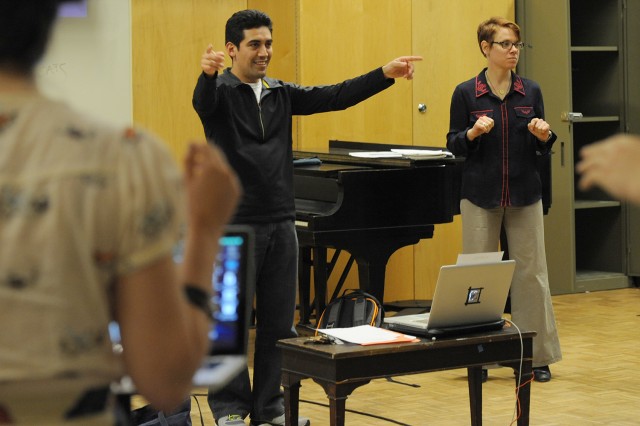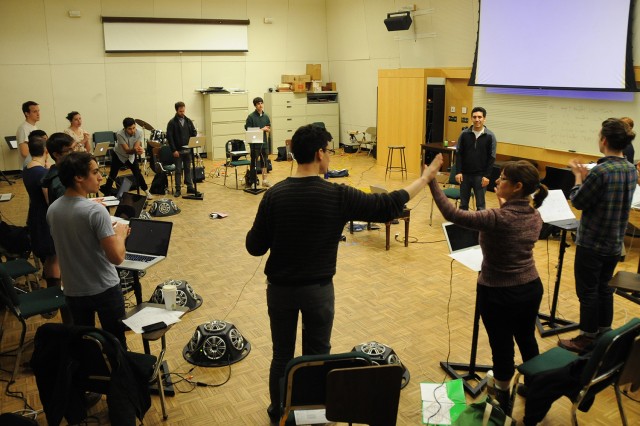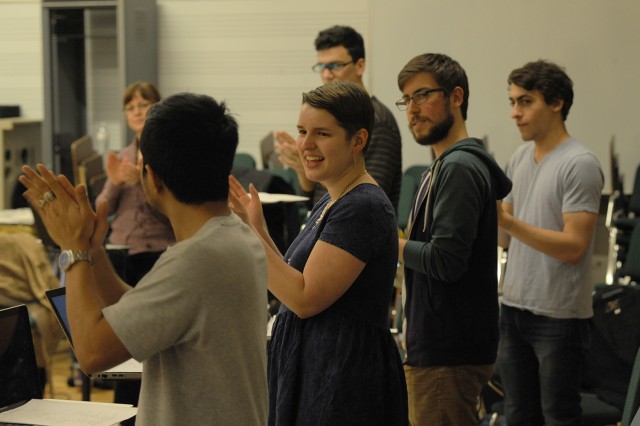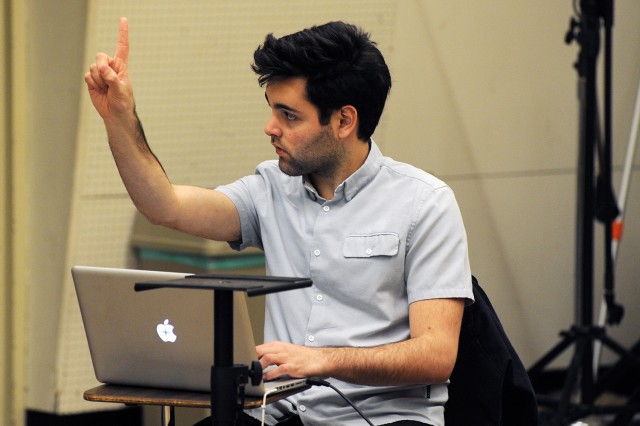Matthusen Honored with Fellowship from American Academy in Rome
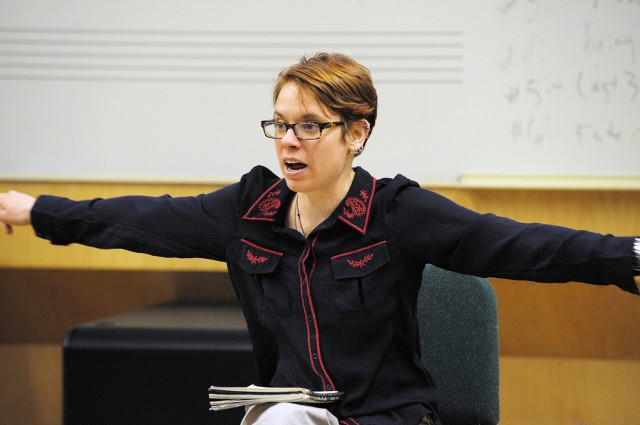
Assistant professor of music Paula Matthusen has won a prestigious Rome Prize from the American Academy, which will allow her to spend the next year in the Eternal City working on the compelling compositions that distinguish her career.
Matthusen is a composer of acoustic and electronic music who, among other things, teaches Laptop Ensemble at Wesleyan, and records sound in historic structures and architecture. The resulting work reflects the character of these spaces, which include the Old Croton Aqueduct in New York. As an American Academy fellow, she will visit the paths of the Roman aqueducts.
“I’m elated,” Matthusen said. “It’s a very great honor and a wonderful opportunity.”
Each year, through a national competition, the Rome Prize is awarded to approximately thirty individuals who represent the highest standard of excellence in the arts and humanities. The American Academy in Rome provides extended time and support (room, board, stipend, work space, and freedom from every-day cares) for each fellow to pursue his or her own work and to live among other artists and scholars.
“The Rome Prize in composition has been awarded to such musical luminaries as Samuel Barber, Elliot Carter, and David Del Tredici,” said Dean of the Arts and Humanities Andy Curran. “We are extremely proud that Paula, who reflects the strength of Wesleyan’s music program, has been admitted to this select group.”
Her Old Croton Aqueduct work, developed by working with the Friends of the Old Croton Aqueduct, was called “eden’s arch of promise bending,” after a line in an ode composed at the opening of the waterwork in 1842. The Aqueduct was closed in the mid-20th century, but for more than 100 years, it brought water from Westchester to Manhattan and enabled New York City’s enormous growth. The composition explores the nature of the aqueduct through field recordings and samplings of its resonant frequencies. Go here to listen to an excerpt.
The New York Times has praised Matthusen’s “creative vitality” and “vivid imagination.”
The Academy is a leading American overseas center for independent studies and advanced research in the fine arts and humanities. Founded in 1894, the Academy was chartered as a private institution by an act of Congress in 1905. On the occasion of the Academy’s centennial, the President of the United States signed a joint resolution of Congress in recognition of the Academy’s contribution to America’s intellectual and cultural life.
Pictured below are photos taken at Paula Matthusen’s “Laptop Ensemble” class on April 7. She also teaches a class on “Total Harmony.” (Photos by Ryan Heffernan ’16)


